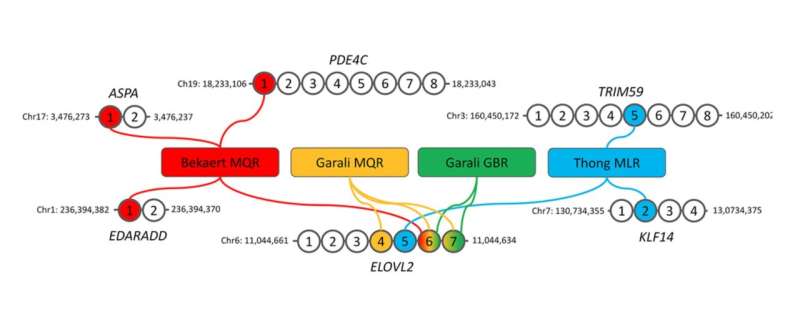Why centenarians consistently present a younger epigenetic age than their chronological age

Aging is a progressive time-dependent biological process affecting individuals differentially. Some may present exceptional longevity. One of the hallmarks of aging is epigenetic alterations, which comprise the epigenetic drift and clock at DNA methylation level.
05 nov 2022--In a new study published in Aging, researchers Antoine Daunay, Lise M. Hardy, Yosra Bouyacoub, Mourad Sahbatou, Mathilde Touvier, Hélène Blanché, Jean-François Deleuze, and Alexandre How-Kit from Foundation Jean Dausset—CEPH, Laboratory of Excellence GenMed, Sorbonne Paris Nord University, University of Paris (CRESS), and Institut François Jacob investigated the DNA methylation-based age (DNAmage) of long-lived French individuals in the CEPH Aging Cohort using four epigenetic clocks.
"In the present study, we estimated the DNA methylation-based age (DNAmage) using four epigenetic clocks based on a small number of CpGs in French centenarians and semi-supercentenarians (CSSC, n=214) as well as nonagenarians' and centenarians' offspring (NCO, n=143) compared to individuals from the French general population (CG, n=149)," report the researchers.
DNA methylation analysis of the nine CpGs included in the epigenetic clocks showed high correlation with chronological age (-0.66>R>0.54) and also the presence of an epigenetic drift for four CpGs that was only visible in CSSC. DNAmage analysis showed that CSSC and to a lesser extend NCO present a younger DNAmage than their chronological age (15-28.5 years for CSSC, 4.4-11.5 years for NCO and 4.2-8.2 years for CG), which were strongly significant in CSSC compared to CG (p-values<2.2e-16).
These differences suggest that epigenetic aging and potentially biological aging are slowed in exceptionally long-lived individuals and that epigenetic clocks based on a small number of CpGs are sufficient to reveal alterations of the global epigenetic clock.
"This suggests a decelerated epigenetic and biological aging in these two groups of individuals, confirming the results of three other studies performed on Italian, Australian and Israeli long-lived individuals. In addition, our study also demonstrated the possibility of using epigenetic clocks based on a small number of CpG sites to reveal DNAmage and chronological age differences between individuals with different life expectancy."
No comments:
Post a Comment